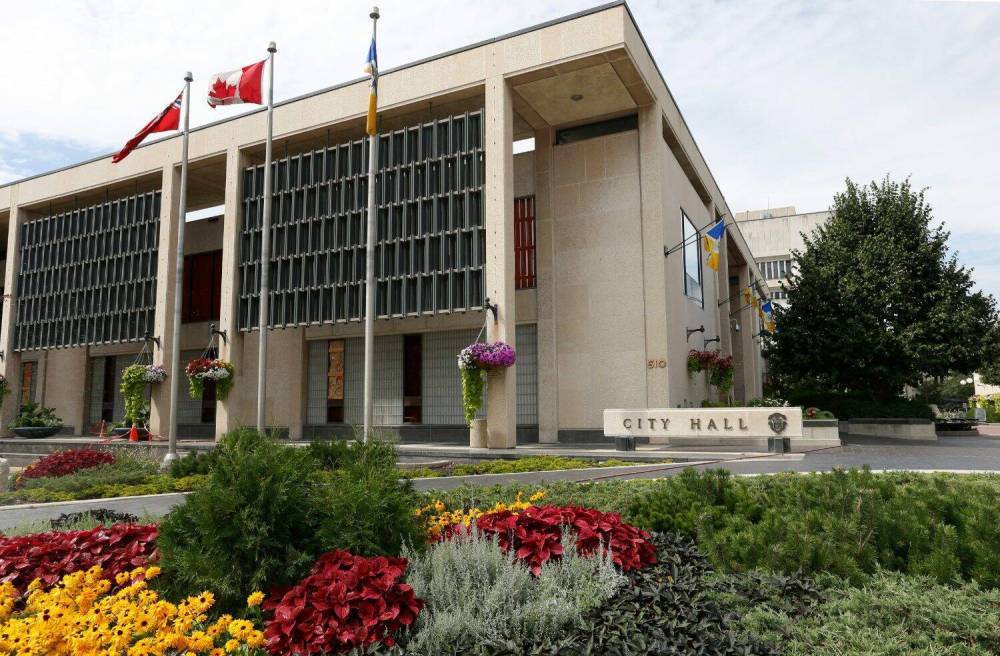What do city councillors do?
Advertisement
Hey there, time traveller!
This article was published 14/09/2022 (1213 days ago), so information in it may no longer be current.
BY CODY SELLAR
STAFF REPORTER
WINNIPEG
Photo by Trevor Hagan / Winnipeg Free Press
Manitobans will elect their city councillors on Oct. 26.
On Oct. 26, Manitobans will head to the polls to vote in municipal government and school board elections.
In Winnipeg, much of the talk before election day will centre around the race for mayor, as the city braces itself for a new face after current mayor Brian Bowman’s decision not to run for re-election. Fifteen city councillors represent different parts of the city (wards), rounding out the political body.
Councillors have a few central tasks. They should scrutinize and provide oversight of city administration (i.e. public works, water and waste, the Winnipeg Police Service), and they should represent their constituents’ interests, listen to them, and present their issues to council or administration. They should also work to attract funding for city projects.
However, Aaron Moore, chair of the University of Winnipeg’s political science department, said it’s important to know the scope of a councillor’s power.
“It’s not to say they can’t do anything, but the role is relatively limited,” he said.
Moore said councillors might be able to get small things done on their own, such as filling potholes, but ultimately, they function as a group.
Councillors do not make unilateral decisions, even on projects specific to their ward. These projects snake through two or three levels of committees at city hall. At each level, fractions of city council vote on whether or not to recommend approval to the next committee. Finally, the whole of city council, mayor included, votes to approve or reject the motion.
When it comes to funding things like infrastructure projects, Moore said councillors often deal between themselves for support.
“There’s a lot of what we would call ‘log rolling,’ which is councillors who come to an agreement with other councillors saying, ‘if you support this funding in my ward, then I’ll support that project in your ward,’ and that sort of thing,” Moore said.
Councillors do have influence over projects and services in their particular ward in lower-level committees, called community committees. There are five of these, each made up of three wards, which deal only with matters specific to those three wards.
Councillors generally cannot quash matters at this level, but they do make recommendations that go to the next step on the political ladder. These recommendations are not insignificant.

“Unless something is very controversial, councils tend to agree with what the committees have decided, because it’s these committees who provide the greater scrutiny and ask questions of the administration,” Moore said.
Councillors also sit on the next level of committees, called standing policy committees. These six committees are divided functionally rather than geographically. For example, one standing policy committee focuses on finance, while another zeros in on innovation and economic development.
The mayor decides which councillors sit on each of these standing policy committees. The mayor also chairs the next level of committee and dictates which six councillors will make up the rest of the committee. There is only one committee at this level, called the executive policy committee, or EPC. On many matters, it makes the final recommendation to city council.
Councillors also serve on several other peripheral boards and committees, which sometimes include civilians and discuss matters ranging from appeals of council decisions to bureaucratic procedures at city hall.
With their fingers in so many issues, councillors cannot be experts in every issue they address, Moore said, yet they still must represent their constituents and oversee city administration.
“That can cause tension. It’s an issue because you’ll get conflict between what the councillors want to see and what the administration wants to see,” he said.
For the upcoming election, Moore advised voters to look for councillors willing to discuss the state of city finances. He said years of frozen property taxes — the city’s main source of revenue — and, more recently, the pandemic have left the city in a dire financial situation.
Incumbent councillors may be hesitant to talk about this, for fear of being seen in favour of raising taxes, he said, especially in wards without serious challengers to their seat in council. But Moore counted this as perhaps the greatest challenge the city faces today, as it can eat away at all city services, projects and supports.

Cody Sellar
Cody Sellar was a reporter/photographer for the Free Press Community Review.
Our newsroom depends on a growing audience of readers to power our journalism. If you are not a paid reader, please consider becoming a subscriber.
Our newsroom depends on its audience of readers to power our journalism. Thank you for your support.



